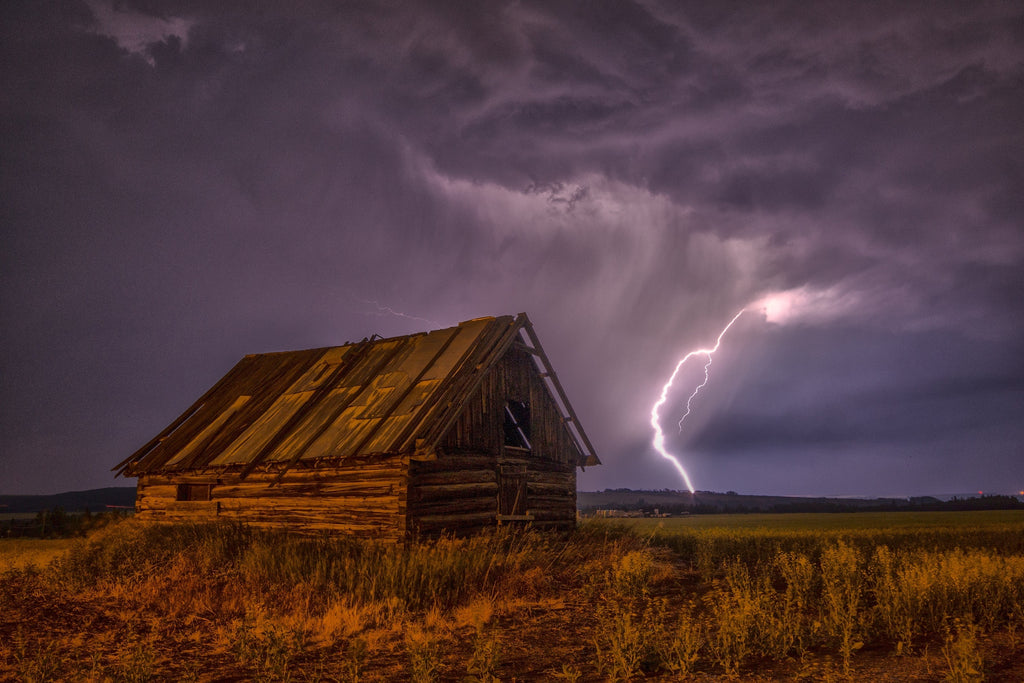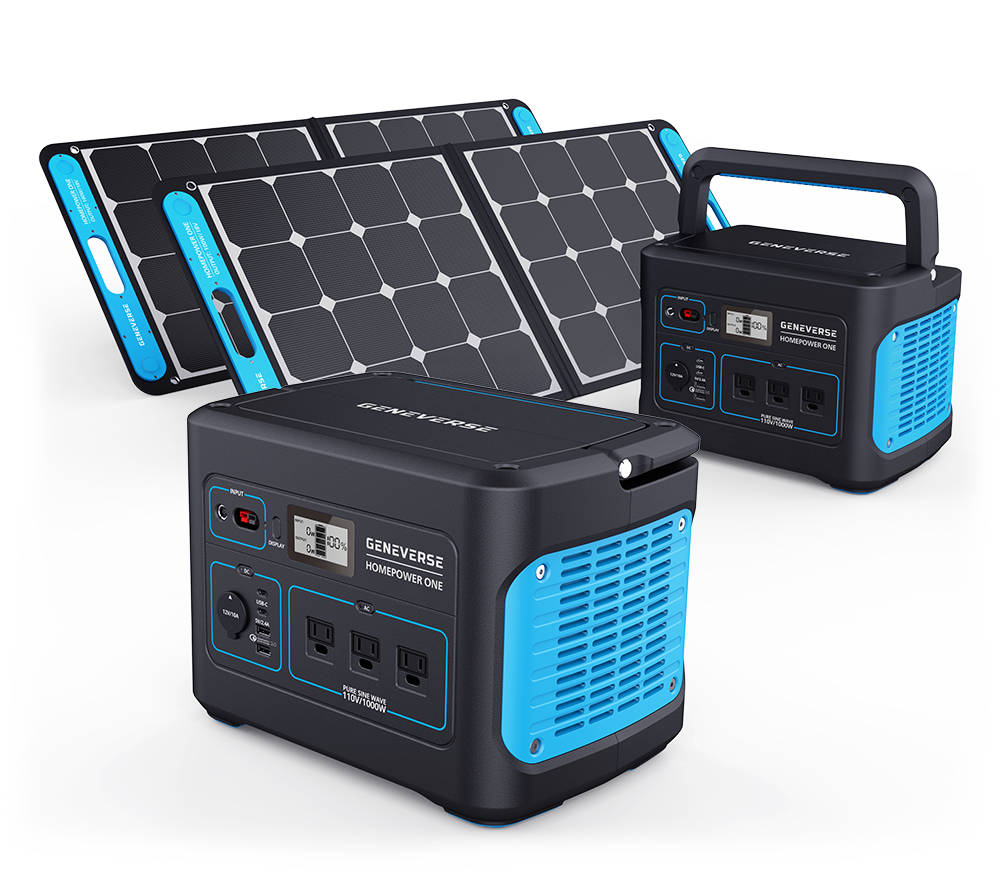The Southern region of the United States is the widest-sweeping, encompassing Virginia, West Virginia, North and South Carolina, Georgia, Florida, Alabama, Kentucky, Mississippi, Louisiana, Arkansas, Tennessee, Texas, and Oklahoma. According to the Red Cross, residents in the South are most susceptible to tornadoes, hurricanes, landslides, and earthquakes.
As is the case with all weather emergencies, you’ll want to begin gathering supplies to create an emergency preparedness kit. Keep essentials on hand year round like water, non-perishable foods, and a first-aid kit. Weather emergencies also always come with the risk of a power outage. Think about the last time you lost power, and decide if your household could benefit from a backup battery power source. The HomePower ONE is compatible with a wide range of household appliances, like the refrigerator and lighting, and can charge your electronic devices to keep you in communication with family and the community.

Here are some more tips to help you prepare for each type of weather event that can hit your area.
1. Hurricanes
Hurricane season in the Atlantic is June 1 - November 30. Begin your preparation by assessing the risk a hurricane poses to your home and community. Evaluate what on your property could cause damage and remove risks like dead trees and be sure to have plenty of room inside to store lightweight yard furniture that could blow around in the wind. Learn the best routes of evacuation and practice them now, so you’ll be confident when the time comes to actually need to drive them.
2. Tornadoes
While you should always pay attention to local weather forecasts in case a tornado is predicted, it is also helpful to know and understand the warning signs yourself. Some prominent signs of a tornado include a rotating, funnel-shaped cloud, an approaching cloud of debris, or a loud roar similar to a freight train.

Educate yourself on how your county or community warns residents about tornadoes. Most tornado-prone areas utilize a siren system for both tornado watches and warnings. A tornado watch is issued when weather conditions favor the formation of a tornado, like during a severe thunderstorm. During a tornado watch you should pay special attention to local news stations and be prepared to take shelter at a moment’s notice. A tornado warning is issued when a tornado funnel has actually been sighted or indicated by weather radar. In this case, you need to immediately take shelter.
3. Thunderstorms
Since tornadoes are so commonly accompanied by thunderstorms, begin to pay close attention to changing weather conditions during a storm. A severe thunderstorm watch means a severe thunderstorm is possible in your area, while a warning means one is currently occurring.

Lightning strikes and rumbling thunder may often start well before rain hits your area, oftentimes 30 minutes. You may also experience winds of up to 50 miles per hour, flash flooding, hail, and tornadoes. Find out if your area has an emergency alert system that will let you know when a storm is coming and weather conditions being reported nearby. The most common cause of injury during a storm is someone ignoring or never hearing the weather alerts. If a storm is coming, clear hazards from your yard and find safe shelter.
4. Landslides
Kentucky, Virginia, and West Virginia are most prone to experiencing a landslide. To avoid being caught off guard, sign up for local emergency notifications that will alert you of unusual weather conditions or provide evacuation and shelter warnings. It is important to take action immediately following an evacuation notice, as every minute allows the landslide time to become faster and more dangerous.
Consult a geotechnical professional if you’re worried your home or business may be in a path of or improperly prepared for a landslide or mudslide.Since you cannot change the path once a debris flow has started, you may be able to protect your property from mud or floodwaters with sandbags, retaining walls, or k-rails.
5. Earthquakes
If you live in Oklahoma, Arkansas, Kentucky, Tennessee, South Carolina, Mississippi, Louisiana, or Missouri, you’re more likely to experience an earthquake. Assess the structural soundness of your home and consider making improvements sooner rather than later. Similarly, identify any objects inside your home that could become a hazard, like heavy bookshelves or glass objects, and secure them. Next, evaluate which room of your house would be safest to shelter in, or the safest part of each room of your home. The safest area of your home would be away from glass, hanging objects, heavy cabinets, and other large furniture. A room without ceiling light fixtures like chandeliers and exposed shelving is also safest. Contrary to popular belief, do not stand in doorways. If driving, pull over and set your emergency parking brake.
Summary
If you’re living in the South, begin educating yourself about the effects of hurricanes, tornadoes, landslides, earthquakes, and thunderstorms on your community. Begin preparing an emergency supply kit, identify potential hazards in or around your home, and learn evacuation routes and places of shelter. Practice all safety plans with your whole household so you’re all prepared, no matter when you’re affected. Since power outages are common with these types of weather events, consider purchasing an emergency generator like the HomePower ONE or SolarPower ONE.

About Geneverse: Geneverse (formerly Generark) is the most reliablesolar generator and source of emergency backup power for your home and community. From theHomePower backup battery power station providing portable access to electricity, to theSolarPowersolar panels as a source for recharging, never be disconnected from what matters most to you. Learn more about how Geneverse and its industry-leading 5-year limited warranty can bring protection and security to your family ongeneverse.com. Never face a power outage alone, and power your home with a solar generator from Geneverse.




Leave a comment (all fields required)